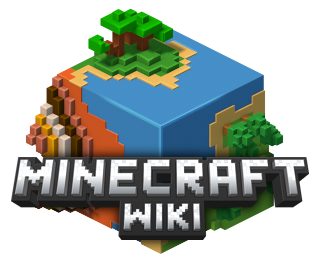About this project
There are now five distinct versions of Minecraft, each with certain characteristics that are not universally shared by the others:
- Java Edition
- Bedrock Edition
- Legacy Console Edition
- Education Edition
- New Nintendo 3DS Edition
Most of our articles were originally written to describe Java Edition. As new versions were added, we inserted information about them and tagged it with the {{Exclusive}} and {{only}} templates to identify which facts apply to which versions. These templates have worked well enough as a stopgap, but there are shortcomings. The work of this project is to address the following flaws and make our articles easier for our readers to read and use and easier for our editors to edit.
Shortcomings of the current method
- The current templates don't support New Nintendo 3DS Edition, and only support Education Edition at the article level.
- We have no way to tag article sections, paragraphs, groups of paragraphs, or groups of statements as edition-specific information.
- We have no standardized way to tag non-sentential information, such as in infoboxes, tables, captions, etc.
- An individual tagged statement is only marked at the end. Readers are thus forced to read, then ignore, information that's not relevant to them.
- Even if a reader looks ahead to the marker note and skips irrelevant information, their flow is interrupted and reading is hard because the information they want is scattered.
- Even relevant marker notes are sometimes long and disruptive to reading, especially after a statement that applies to many versions.
- The marker notes are superscripted and in brackets like editorial notes, which generally means they can be ignored when reading casually. But if you actually read the text that way the statements are often contradictory. The superscripted form isn't actually appropriate, because these aren't really editorial notes.
- Having no way to tag a series of statements, we've often tagged only the last statement in the series, making it ambiguous what the marker note includes.
- When information specific to one version isn't true for another version, but we don't have the corresponding information for the second version, we often didn't tag anything because our approach has been to present contrasting information. For example, we knew spawning worked differently in Bedrock, but we didn't have any details, so we never marked the Java spawning as Java-specific. Information about villages is another example, and there may be many others.
- When information applies to most versions, coding the template is tedious because you have to list a lot of versions.
- When differentiation between editions intersects with differentiation between present and upcoming versions – such as when information varies between the Bedrock upcoming version, the Bedrock present version, the Java upcoming version and the Java present version – there is no unified guideline on how to write this information. Presently a combination of
{{only}}and{{upcoming}}tags is typically presented, and the drawbacks of such tags as discussed in earlier points are usually only compounded. - There is no master list of which templates are the ones for version differentiation, creating the potential that whenever a new edition is released, rare though that may be, some templates can be missed.
- There is also no master list of editions, which contributes to the problem listed above.
- There is no formalized nomenclature ("java", "computer", "pc", etc) for this particular purpose, creating an environment where learning to use the templates requires learning the interface of each individually.
- There is no formalized procedure, instructions or guidelines for adding edition categories (such as the ones in Category:Edition specific categories), and no guidance on how to decide and update nomenclature.
- The present solution for categorizing edition differences depends on tags, and because of this, is very dependent on phrasing. When a topic is presented in the form: "In Java the feature behaves thus, but in Bedrock it behaves thus," the page is added to Category:Java Edition specific information and its Bedrock counterpart. When a topic is presented in the form: "The features behaves thus, except that in Bedrock, it behaves thus," it is only added to the Bedrock category. The result is a set of categories that definitely aren't complete for their purpose, which is to attempt to draw out all the spots with "edition differences".
- As "Legacy Console Edition" becomes officially deprecated, and as updates continue to roll out, there will be a rapidly-growing chunk of information that is going to need differentiation in some way. To date, no plan has been articulated for this.
Planning Stage
- (Current) Complete the preceding list of flaws.
- (Future) Discuss and choose a global strategy for presenting edition-specific information in a way that best serves readers and editors. (Don't forget IP readers!)
- (Future) Discuss how to implement the chosen strategy using templates and/or other means such as page indicators.
- (Future) Create a list of articles that need refactoring to fit the strategy.
Implementation Stage
- (Future) Create and/or update the templates.
- (Future) Refactor articles.
Members
To join the project, add your signature to the bottom of this list using ~~~.
– Auldrick (talk · contribs) 17:21, 7 June 2018 (UTC)
– Sealbudsman talk | contribs 13:02, 9 June 2018 (UTC)
--Pepijn (talk) 05:43, 20 June 2018 (UTC)
Holroy talk◆contribs 09:46, 7 July 2018 (UTC)
-PancakeIdentity (talk) 02:21, 6 June 2019 (UTC)
